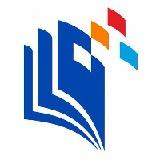Joyce Wong is an Archivist (Digital Preservation) at the National Archives of Singapore, National Library Board, Singapore. She attended the ASA 2023 Conference with support from the DPC Career Development Fund, which is funded by DPC Supporters.
The iconic Melbourne Cricket Ground served as the backdrop for a remarkable gathering of professionals convened at the Australian Society of Archivists (ASA) 2023 Conference. I had the privilege of receiving the Digital Preservation Coalition (DPC) Career Development grant, which enabled me to attend the conference in person to meet and connect with other professionals – a highlight after the Covid-19 pandemic. The theme of this year's conference, "Rising To Our Challenges," resonated with the conference delegates and prompted meaningful discussions of the challenges encountered by the archives.
The Pervading Challenges
One common and tenacious challenge is the need to advocate for digital preservation to secure the support and required budget from the management and other stakeholders to handle the growing workload. The prevailing sentiment underscores the difficulty in obtaining the necessary funding when key stakeholders deprioritise the value of digital preservation or lack an understanding of what digital preservation entails. To cope with increasing demand for access coupled with the management and preservation of voluminous (yet complex) quantity of digital records, automation becomes a priority in everyone’s minds. However, automation brings its own set of challenges and concerns that need to be addressed.
(1) Balancing Innovation with Security
Archives are grappling with limited budgets and resources, inadequate technological support, and an ever-growing collection to catch up on. The tasks at hand are massive: ensuring that vital records are not only collected and properly preserved ensuring their accessibility in the long-term, but they should be adequately described to facilitate discovery. Moreover, the records must be diligently managed to safeguard sensitive and classified records.
In a world where automation is becoming increasingly critical to tackle complex issues, we find ourselves at a crossroad. Implementing automation solutions, especially when relying on third-party Artificial Intelligence (AI) tools, open a realm of possibilities and challenges. These tools have the potential to transform how institutions operate but they also bring complexities that require careful consideration and further discussions among the community. Concerns over security and data privacy are paramount, particularly when dealing with sensitive information. Investing in AI tools can be a significant financial commitment especially when the returns may not be immediately apparent. The hurdles are even higher when implementing third-party AI tools in a secure public sector environment with stringent security regulations.
Another common concern is the lack of understanding surrounding the decision-making processes of AI and machine learning tools. This may result in apprehension about adopting these technologies and can even raise fears about potential job displacement. To bridge this gap and alleviate concerns, institutions may consider implementing trainings for their staff to promote better understanding on the use of AI. Furthermore, the introduction of a new legislation could prove pivotal in enhancing transparency in the use of AI tools and ensuring responsible management of the data.
A successful shift to adopt automation and innovation in our work would require a unified effort within the archives, a collaboration with relevant authorities and stakeholders and a will to break free of the status quo. With the adoption of AI tools becoming more widespread in Singapore and internationally, I hope there will be more collaborations, trainings, and resources on the use of AI tools among the community and organisations at large to navigate this evolving landscape successfully.
(2) Bridging the Understanding Gap
Another significant challenge we face as archivists and digital preservationists is the daunting uphill battle to gain support and appreciation from our stakeholders on the significance of digital preservation and the demanding amount of work it involves. The need to constantly champion for digital preservation has become more urgent with most records being created and received in the digital form, especially with the strong push for digitalisation because of the Covid-19 pandemic.
Advocacy efforts can take on different forms, from presenting the collections as invaluable digital assets to showcasing the value of archives through events and collaborative initiatives on social media platforms. These strategies help bridge the gap between archives and the communities they serve, emphasising the timeless relevance and significance of safeguarding vital records for generations to come.
Some archives collaborate with dedicated volunteers, tapping into their passion and expertise as they share our unwavering commitment to preserving these key evidence and collective memories for the present and beyond. These partnerships offer mutual benefits, where archives engage with a broader audience while volunteers make valuable contributions to our archival work.
As a digital preservationist, I can attest to the complexities that arise when working with IT professionals and other stakeholders who may not fully grasp or understand the intricacies of digital preservation within the archives. The lack of a common language among various stakeholders hinders effective communications and collaborations, e.g. digital preservation may be erroneously equated with routine IT backup. Frequently, I find it necessary to invest time in explaining key concepts of records management and digital preservation to the stakeholders to set the stage for productive discussions and collaborations ahead. While this can be time-consuming, it is a necessary step to ensure the stakeholders truly understand the work of the archives, and the value of ensuring such records continue to be available over time.
Acknowledgements
The Career Development Fund is sponsored by the DPC’s Supporters who recognize the benefit and seek to support a connected and trained digital preservation workforce. We gratefully acknowledge their financial support to this programme and ask applicants to acknowledge that support in any communications that result. At the time of writing, the Career Development Fund is supported by Arkivum, Artefactual Systems Inc., AVP, boxxe, Ex Libris, Iron Mountain, Libnova, Max Communications, Preservica, Simon P Wilson, and Twist Bioscience. A full list of supporters is online here.













































































































































